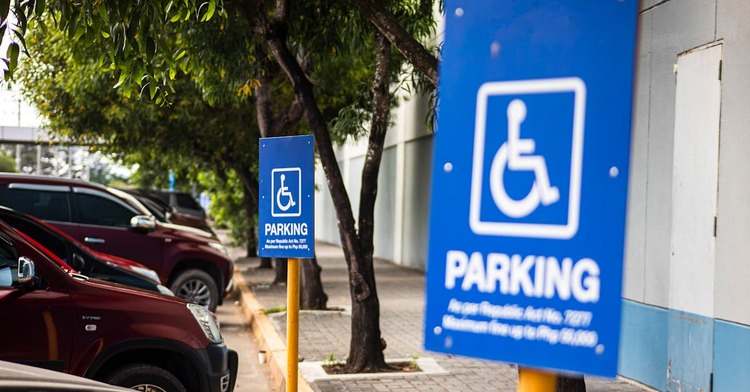
Temporary vs. Permanent Disabled Parking Permits: What’s Best During Pregnancy?
Introduction
Pregnancy is a unique and significant phase in a woman's life, marked by physical, emotional, and psychological changes. As the body undergoes transformation to accommodate a growing baby, mobility and physical comfort may become increasingly challenging. This is especially true during the later stages of pregnancy when movement can be hampered by physical limitations such as back pain, swelling, and fatigue. For pregnant women who face mobility issues, access to convenient parking becomes not just a matter of comfort, but a necessity for their health and well-being. This is where disability passes come into play.
Disabled parking permits, often referred to as handicapped parking permits, allow individuals with mobility impairments to park in designated spaces that are closer to entrances of buildings, reducing the distance they need to walk. These passes can be temporary or permanent, depending on the nature and duration of the disability. However, the application and issuance process for these passes varies depending on the individual's condition and needs.
The question of whether temporary or permanent disability passes are more suitable for pregnant women is both important and timely. This article will explore the differences between temporary and permanent disability tags, their relevance during pregnancy, and provide a comprehensive analysis of which option may be the most beneficial for pregnant women. Additionally, we will delve into the specifics of how disability passes work for pregnant women, the eligibility criteria, and the implications of using such passes.
Understanding Disabled Parking Permits
What is a Disabled Parking Permit?
A disabled parking permit, also known as a handicap placard or disability parking placard, is a special pass that allows individuals with disabilities to park in designated accessible parking spaces. These spaces are usually located closer to the entrance of buildings, making it easier for people with mobility challenges to access their destinations. Disability passes can be issued on a temporary or permanent basis, depending on the nature and severity of the individual's disability.
Types of Disabled Parking Permits
There are generally two types of disability tags: temporary and permanent.
Temporary Tags
Temporary passes are issued to individuals with temporary mobility impairments that are expected to improve over time. These passes are typically valid for a short duration, ranging from a few weeks to a few months, depending on the severity of the condition. Common conditions that may qualify an individual for a temporary tag include recovery from surgery, injury, or certain medical treatments that temporarily impair mobility.
Eligibility Criteria:
To qualify for a temporary tag, an individual must provide medical documentation from a licensed healthcare provider. This documentation should outline the nature of the disability, the expected duration of the impairment, and how it impacts the individual's ability to walk or perform daily activities.
Application Process:
The application process for a temporary tag is relatively straightforward. Most states and municipalities require applicants to fill out a form, attach medical documentation, and submit it to the appropriate local authority (such as the Department of Motor Vehicles or a city parking authority). Once approved, the pass is issued and can be displayed in the vehicle's windshield when parked in a designated accessible parking space.
Benefits:
- Short-Term Convenience: Temporary tags provide immediate relief and accessibility for individuals facing temporary mobility challenges.
- Ease of Renewal or Cancellation: Since these tags are short-term, they can be easily renewed if the condition persists or canceled once the individual no longer requires assistance.
Permanent Tags
Permanent disability tags are issued to individuals with long-term or permanent disabilities that significantly impact their mobility. These passes are usually valid for several years and must be renewed periodically. Conditions that typically qualify for a permanent tag include chronic illnesses, severe physical disabilities, or conditions that result in permanent mobility impairment.
Eligibility Criteria:
To qualify for a permanent tag, an individual must provide medical documentation from a licensed healthcare provider that details the nature of the disability, its permanence, and its impact on mobility. In some cases, a second opinion or additional medical evaluation may be required.
Application Process:
The application process for a permanent tag is similar to that of a temporary pass, with the key difference being the permanence of the condition. Applicants must fill out a form, provide medical documentation, and submit it to the relevant authority. Once approved, the tag is issued and remains valid for several years, with periodic renewals required.
Benefits:
- Long-Term Accessibility: Permanent passes provide ongoing access to accessible parking spaces for individuals with chronic or permanent mobility impairments.
- Stability: With a longer validity period, individuals do not need to frequently reapply, reducing administrative burden.
Disabled Parking Permits for Women During Pregnancy
Pregnancy is not typically classified as a disability; however, the physical and physiological changes that occur during pregnancy can significantly impact a woman's mobility, particularly in the later stages. Conditions such as severe back pain, pelvic pain, sciatica, and swelling can make walking difficult, and prolonged standing or walking can exacerbate these issues. In these cases, the benefits of a disabled parking permit during pregnancy can provide much-needed relief and accessibility.
When Might a Pregnant Woman Need a Disability Tag?
The need for a disability pass during pregnancy typically arises when the physical demands of pregnancy lead to mobility challenges. Some common scenarios where a pregnant woman might require a disability pass include:
- Third Trimester Challenges: As the pregnancy progresses, the weight of the baby and the changes in the woman's center of gravity can lead to significant discomfort and difficulty in walking long distances.
- Pregnancy-Related Complications: Conditions such as gestational diabetes, preeclampsia, or placenta previa may require limited physical activity, making close parking essential.
- Pelvic Girdle Pain (PGP): PGP is a common condition during pregnancy, characterized by pain in the pelvic region. It can make walking, standing, and even sitting for long periods difficult.
- Multiple Pregnancies: Women carrying twins or multiples often experience more severe physical strain, making mobility more challenging.
- General Fatigue and Swelling: Many pregnant women experience general fatigue and swelling in the feet and legs, particularly in the later stages of pregnancy. This can make walking or standing for extended periods uncomfortable.
These conditions can vary in severity from woman to woman, and in some cases, they may significantly impair a woman's ability to walk or stand. In such cases, a disability pass can be a valuable tool to help manage the physical challenges of pregnancy.
How to Apply for a Disabled Parking Permit During Pregnancy
If a pregnant woman experiences significant mobility challenges, she may be eligible for a temporary disability pass. The application process is similar to that for other temporary disabilities:
- Consultation with a HandicapMD Healthcare Provider: The first step in the application process is to consult with a HandicapMD healthcare provider. Discuss your symptoms and mobility challenges with your doctor, and ask if they believe you qualify for a disability tag. The healthcare provider will complete the medical certification portion of your application, so it's important to have this conversation early in the process.
- Medical Documentation: The healthcare provider will need to provide medical documentation that outlines the specific mobility challenges faced during pregnancy and the expected duration of these challenges.
- Application Submission: The completed application form, along with the medical documentation, should be submitted to the relevant authority (usually the Department of Motor Vehicles or local parking authority).
- Approval and Issuance: If the application is approved, a temporary disability tag will be issued, allowing the pregnant woman to park in designated accessible parking spaces.
Temporary vs. Permanent Disabled Parking Permits: A Comparative Analysis for Pregnant Women
The decision between a temporary and permanent disability pass during pregnancy largely depends on the nature and duration of the mobility challenges faced. Below, we will compare the two options in the context of pregnancy.
Duration of Need
Temporary Disability Parking Pass:
- Suitability: Temporary passes are ideal for pregnant women who experience mobility challenges only during certain stages of pregnancy, such as the third trimester. Since these passes are designed for short-term use, they align well with the temporary nature of pregnancy-related mobility issues.
- Flexibility: Temporary passes can be issued for the duration of the pregnancy or until the mobility challenges subside after childbirth.
Permanent Disability Parking Pass:
- Suitability: Permanent passes are not typically suitable for pregnant women unless the woman has a pre-existing permanent disability that is exacerbated by pregnancy. Since pregnancy is a temporary condition, a permanent pass is generally not necessary.
- Consideration: In rare cases where pregnancy-related complications result in long-term mobility impairment, a permanent pass may be considered.
Administrative Convenience
Temporary Disability Parking Pass:
- Ease of Application: The application process for a temporary pass is generally straightforward and requires minimal documentation. Since the pass is short-term, there is less administrative burden compared to a permanent one.
- Renewal: If the mobility challenges persist after the initial validity period, the pass can be easily renewed with updated medical documentation.
Permanent Disability Parking Pass:
- Complexity: The application process for a permanent pass may be more complex, requiring additional medical evaluations or documentation. Renewals are less frequent but may involve more rigorous review processes.
Relevance to Pregnancy
Temporary Disability Parking Pass:
- Appropriateness: Temporary passes are more appropriate for pregnancy-related mobility challenges due to their short-term nature. They provide the necessary relief and accessibility without committing to a long-term solution.
- Flexibility: These passes can be tailored to the specific needs of the pregnancy, ensuring that the woman receives the necessary support during the most challenging stages.
Permanent Disability Parking Pass:
- Inappropriateness: Given that pregnancy is not a permanent condition, a permanent pass is generally not appropriate unless there is an underlying chronic condition. The long-term nature of permanent passes does not align with the temporary challenges of pregnancy.
Ethical and Legal Considerations
The use of handicap tags during pregnancy raises important ethical and legal considerations. These include the fairness of allocating disability parking spaces to pregnant women, the potential for misuse of passes, and the legal framework governing tag issuance.
Ethical Considerations
One ethical concern is whether it is fair to allocate disability parking spaces to pregnant women, given that these spaces are typically reserved for individuals with permanent disabilities. On one hand, pregnancy can create significant mobility challenges that justify the use of such spaces. On the other hand, there is a finite number of accessible parking spaces available, and their use by pregnant women may limit access for individuals with permanent disabilities.
Another ethical consideration is the potential for misuse of disability passes. While the vast majority of pregnant women who apply for these passes genuinely need them, there is a risk that some individuals may exaggerate their symptoms to obtain a pass. This could lead to reduced availability of parking spaces for those with more severe mobility impairments.
Legal Considerations
The legal framework governing disability passes varies by jurisdiction, but there are generally strict criteria that must be met to qualify for a pass. Most jurisdictions require medical documentation to substantiate the need for a pass, and there are penalties for misuse or fraud. Pregnant women who apply for a disability tag must ensure that they meet the eligibility criteria and use the pass in accordance with the law.
In some jurisdictions, there are specific provisions for pregnant women to apply for a temporary handicap tag, recognizing the unique mobility challenges they may face. These provisions help to ensure that pregnant women can access the necessary support without compromising the availability of parking spaces for individuals with permanent disabilities.
Case Studies and Real-Life Scenarios
To provide a more comprehensive understanding of the issue, let's explore a few real-life scenarios where pregnant women might need to choose between a temporary and permanent handicap tag.
Case Study 1: Sarah's Third Trimester Challenges
Sarah is a 34-year-old woman in her third trimester of pregnancy. She has been experiencing severe back pain and sciatica, making it difficult for her to walk long distances. Her obstetrician recommends that she limit her physical activity and suggests applying for a temporary disability tag.
Sarah applies for the tag, providing medical documentation from her obstetrician that details her condition and the expected duration of her mobility challenges. She is issued a temporary tag valid for three months, covering the remainder of her pregnancy and the immediate postpartum period.
Outcome: The temporary tag allows Sarah to park closer to her destinations, reducing the physical strain on her body and helping her manage her symptoms during the final weeks of her pregnancy.
Case Study 2: Maria's Multiple Pregnancy
Maria is a 28-year-old woman pregnant with twins. Due to the additional weight and strain on her body, she experiences significant swelling in her legs and feet, making walking painful. Her doctor advises her to apply for a temporary disability pass to minimize her physical exertion.
Maria applies for the pass, and it is issued for a period of four months, covering the latter half of her pregnancy. The pass allows her to park in designated accessible spaces, making it easier for her to attend medical appointments and run errands.
Outcome: The temporary pass provides Maria with the necessary support during her multiple pregnancy, ensuring that she can safely and comfortably navigate her daily activities.
Case Study 3: Emma's Chronic Condition
Emma is a 40-year-old woman with a pre-existing condition of rheumatoid arthritis, which causes chronic pain and joint stiffness. During her pregnancy, her symptoms worsen, making it difficult for her to walk. Her rheumatologist recommends that she apply for a permanent disability pass due to the chronic nature of her condition.
Emma applies for the tag and is approved. The permanent tag provides her with ongoing access to handicap parking spaces, not only during her pregnancy but also for the long-term management of her rheumatoid arthritis.
Outcome: The permanent tag is appropriate for Emma's situation, as her condition is chronic and will require long-term support beyond her pregnancy.
Conclusion: What’s Best During Pregnancy?
When it comes to choosing between temporary and permanent disability passes during pregnancy, the decision largely depends on the nature and duration of the mobility challenges faced by the pregnant woman.
Temporary Handicap Passes are generally the most suitable option for pregnant women, as they provide the necessary support during the specific stages of pregnancy when mobility is most challenging. These tags are flexible, easy to obtain, and can be renewed if needed, making them ideal for the temporary nature of pregnancy-related mobility issues.
Permanent Handicap Passes are typically not necessary for pregnancy-related challenges unless the woman has an underlying chronic condition that warrants long-term support. In such cases, a permanent tag may be appropriate, but it should be based on the specific medical needs of the individual.
Ultimately, the decision should be made in consultation with a healthcare provider who can assess the woman's mobility challenges and recommend the most appropriate course of action. By carefully considering the duration and severity of the mobility issues, pregnant women can choose the tag that best meets their needs, ensuring that they have the support and accessibility required to maintain their health and well-being during this important time in their lives.
References
American College of Obstetricians and Gynecologists (ACOG). (2021). Physical Activity and Exercise During Pregnancy and the Postpartum Period. Retrieved from https://www.acog.org/clinical/clinical-guidance/committee-opinion/articles/2021/04/physical-activity-and-exercise-during-pregnancy-and-the-postpartum-period
U.S. Department of Transportation, Federal Highway Administration. (2015). Parking for Persons with Disabilities. Retrieved from https://www.fhwa.dot.gov/environment/environmental_justice/faq/ejfaq10.cfm
Mayo Clinic. (2022). Pregnancy Week by Week. Retrieved from https://www.mayoclinic.org/healthy-lifestyle/pregnancy-week-by-week/basics/pregnancy-week-by-week/hlv-20049461
Disabled World. (2021). Disabled Parking Permit Rules and Regulations. Retrieved from https://www.disabled-world.com/disability/accessibility/disabled-parking.php
National Institutes of Health (NIH). (2020). Mobility and Pregnancy. Retrieved from https://www.nih.gov/news-events/news-releases/insight-mobility-pregnancy
.png)






